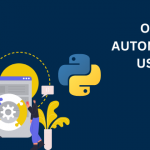Replacing old-school technologies and adopting recent ones always remained a hit formula for success for every industry. Businesses of all sorts were embracing new tools and technologies to stay relevant and gain an edge over their competitors. But, it used to happen at a slow pace.
When the pandemic happened, it became imperative for everyone to be digitally transformed to be standing and functional. No one ever thought going online and cutting down physical interaction could be the ticket to success. Well, life is unpredictable and tends to take us where we never imagined ourselves before.
Just like other industries, being digitally transformed remained the first and only choice for the FinTech industry as well.
Even though banks remained open and functional during the peak of the pandemic as well, people preferred service providers that were offering online services at maximum capabilities. Loan processing, opening mutual funds, document verification, investing in stocks, or whatever; you just name it, and it will be offered digitally. The FinTech industry needed to be digitally sound and transformed to address the present-day requirements.
The deeper digital transformation has made the FinTech industry better than before in ways more than one can ever apprehend. Please have a look at them.
-
Evolution of the Fintech Industry With Customers’ Outlooks and Expectations
FinTech and Finances industries have an image to go slow when changing the course of action or modus-operandi. It’s because they deal with a very crucial commodity or aspect, money. This industry has been abiding by many regulatory and compliance requirements while adopting any new technology or operational capability. But, the outbreak bought up significant changes in the customers’ behaviors, expectations, and priorities.
Customers don’t want to simply visit a bank or financial agency to avail of a loan or apply for a loan. They hated to be with a loan provider that demanded physical document submission for the claim while they had sick family members to look after.
Customers don’t want to be with loan or money management services that don’t support video conferencing, digital signatures, and in-video document verification. Overnight, they want a loan, financial advisors, and money management solutions to do everything online.
Even though it was too much, it was the need of the hour as human interaction was risky then. The digital transformation enabled FinTech service providers to meet all these requirements without a single glitch.
FinTech organizations outsourcing digital transformation services were able to have no-code tools ready within a few days. The right technology partner provided customized software and automation for menial tasks, incorporated competent technologies for online operations, and offered everything else needed to proffer what customers were offering.
-
Easy and Quick Upgrade of conventional lending models
Legacy loans and money lending processes were already going off the board. When the pandemic happened, they became irrelevant. Also, primitive lending methods were not easy to scale. Not everyone had access to them, and it was very pocket-pinching because of the factors like the need for a middleman, too much paperwork, and high processing time.
When the rest of the world was reaping copious benefits from cloud-based tools, it was not wise for the FinTech industry side to stick to an outdated lending model. The industry needed something that could make money lending accessible to anyone, quick, compliant, and less resource-intensive.
Gladly, cloud adoption, APIs, online document verification, in-video verification, biometric-based confirmation, and many other things empowered the FinTech industry so much that it easily got rid of an old-fashioned lending model. All these were the outcomes of digital transformation only.
-
Less Confused Cstomers
Money lending, investments, loans, and everything else that the FinTech industry deals with is very tricky. Being informed is the only way to stay afloat. However, the industry can’t assign a personal advisor to every customer. Digitally transformed organizations are now using chatbots and conversational AI for hearing what their customers have to say and offer personalized solutions.
The best part of these two solutions is that they don’t become tired and can remain functional around the clock. By no means a human agent or advisor can do this. With this tool, it was easy for a FinTech solution provider to resolve the customers’ queries and keep them informed. This has a positive impact on the conversation and customer satisfaction rate.
-
Real-time Tracking
Anyone dealing with investments had to have the power to keep track of market conditions so that they could make the right move. However, it’s a task beyond human capabilities.
With digital transformation, it was easy for FinTech industry players to have market tracking software that can provide the latest updates on the market condition.
Which stock is going up, which is going down, what’s the right time for investment, expected return, and tons of other things can be tracked and analyzed over a single click. Software with future capabilities was more useful as it helped money-lending services to create an effective strategy.
-
Easy Data Accessibility
Every kind of FinTech project has too much data to handle. Honestly speaking, for this industry, simply data handling isn’t enough. It demanded strategy and result-driven data handling that was only possible when data was easily accessible. As a part of the digital transformation strategy, cloud adoption made this possible.
Organizations were able to collect and store KYC data in a centralized place and access it without any hassles. It empowered this industry to a great extent and helped it to make informed and data-driven decisions. With solutions like 2FA, MFA, and role-based access, data security wasn’t compromised at all.
Digital Transformation Is The Key But…
If you managed to grasp the gravity of the facts mentioned above, you might not have any confusion about the significance of digital transformation for the FinTech industry. It is essential for the survival of the market players. But, there are many big IFs here.
- What if the transformation didn’t happen as planned?
- What if the cost involved becomes too high to afford?
- What if new tools and technologies are way too complex that the team failed to juice out them?
- What if digital solutions fail to protect digital data?
These are obvious questions that any FinTech industry player will face before embarking on the digital transformation journey. If they are also resounding in your mind, then don’t fret. There is one viable solution for all these: outsourcing digital transformation services.
It’s not possible for every business to have a dedicated team for software development and upgrades, as building a skilled developer team is both time and capital-consuming. With outsourcing, you have a chance to have a team ready to work for you. You can easily upscale or downgrade the expertise, enjoy customized development, enforce stringent data security measures, and do whatever you want to do with a dedicated outsourced partner like C-Metric.
We have an impressive track record of successfully digitally transforming FinTech businesses within record time and allotted budget. As we are known for creating optimized solutions, our clients ought to experience the best ROI. With us on board, there is hardly anything to be concerned about.















Get in Touch